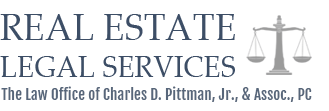Hack Upon Hack
By now you have probably heard that Equifax was hacked by cyber criminals several months ago. They were kind enough to alert the public that the event happened nearly a month after they discovered the breach. Over 148,000,000 people are likely affected.
As if having your personal information, including SSN, DOB, addresses and credit card numbers is not bad enough, Equifax may not be seeking the best interests of those affected in how they are handling the data disaster:
How can I tell if I was hacked?
Equifax has created this website that lets people see if they were affected. The site asks users to enter their last names and the last six digits of their Social Security numbers. If your data was compromised, you’ll see a message like this (yes, it appears I got hit):
Consumer Reports advises us all to be a little paranoid and very cautious. Their take on the Equifax approach to consumer protection is that it is really Equifax protection. By signing up for the free Equifax credit monitoring service, you waive your right to join the gigantic class action suit that has been filed against Equifax!
According to Bloomberg, the suit against Equifax is based on the facts that: (1) this is not Equifax’s first breach; (2) they have been wildly profitable and certainly could have invested more on cyber-security; and (3) the breach occurred via a relatively old cyber-technology and would not have been hard to block.
The truth is that The Bad Guys have the information and a black market forum on which they can start selling it to the highest bidders. YOUR MOST IMPORTANT STEP AT THIS POINT IS TO INCREASE YOUR OWN VIGILANCE! Monitor your bank accounts, credit reports and credit cards. Consider replacing your credit cards and perhaps consolidating down to only one or two. Ironically, the hackers are sending out emails to people to invite them to participate in other allegedly protective programs that in fact turn out to be just hackers using this disaster to elicit consumers to voluntarily give up their own personal information. So you have the bad options from Equifax and then you may actually receive emails that look like they are from Equifax that are new assaults on your privacy and new “phishing expeditions”. When in doubt, get a second opinion before responding to anything from an unknown source!
Don’t pull out of the world of credit entirely unless you already have the only house you’ll ever need and the last loan you’ll ever need to borrow. Stay in the game and try to find a bank where you can build a good relationship with your banker and discuss suspicious transactions as soon as possible.



